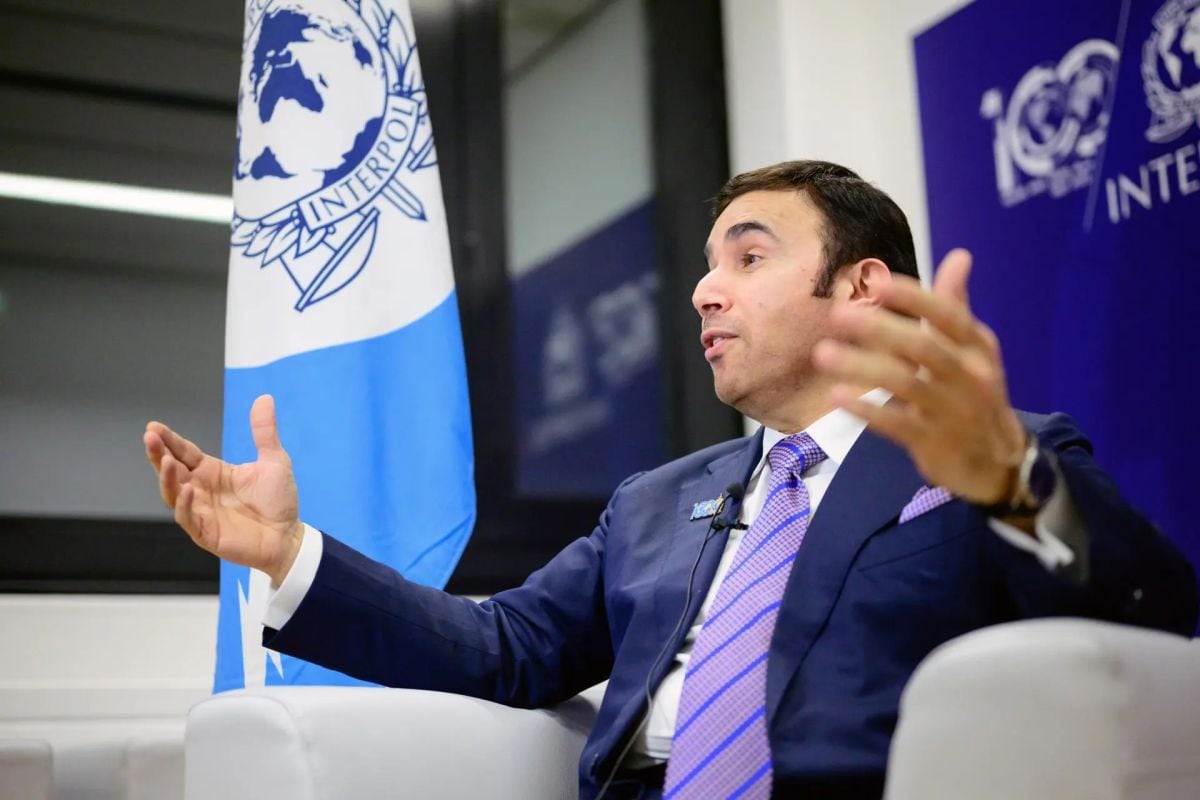
International cooperation and the digitalization of the police are the best antidotes against a “pandemic” overall organized crimewhich increasingly uses new advances such as artificial intelligence (AI) for their criminal activities.
This is the vision of Ahmed Naser Al-Raisi, a general from the United Arab Emirates (UAE) who has presided over Interpol since 2021 and who underlines in an interview with EFE in Vienna the enormous value of this police network that brings together 195 States to exchange information. .
“Transnational crime has become a pandemic in itself. “It affects everyone, but we must be united, share information and give it the highest priority”he assures.
Al-Raisi, who is in the Austrian capital for the Interpol General Assembly that begins this Tuesday, points out that the covid-19 pandemic accelerated the processes of change, also in organized crime, which increasingly uses new technologies to Your activities.
“The technology “It is a double-edged sword and, on the one hand, it helps member countries fight crime, but, on the other, it can also be used by criminals for their own benefit and their crimes.”he points out.
Al-Raisi highlights that he was elected president with a program that sought to increase Interpol’s budget with more contributions from the States, something that – he said – is also necessary to confront the evolution of crimes that use digital tools.
In 2022, Interpol had a budget of 155 million euros, a modest figure that contrasts with the US$870,000 million (791,700 million euros) generated each year by organized crime, according to the United Nations.
“More (funds) are needed for projects, especially with the change and evolution of crime, and tools that use artificial intelligence mean that an increasing contribution is necessary”Al-Raisi highlights.
The digital transition within the organization and support for the digitalization of all police forces, is according to the president of Interpol, a “priority”.
The president, who has experience in the digitalization of the UAE police, highlights that Interpol now has its own innovation center in Singapore, a virtual academy with more than 20,000 training courses, and its own cloud to store data.
Another challenge for Interpol is that geopolitical problems, such as the Russian invasion of Ukraine or tensions between China and the US, do not affect its operation, which is based on the voluntary exchange of information.
According to Al-Raisi, geopolitics does not affect Interpol because the organization maintains a neutral stance and avoids getting involved in conflicts, and highlights that all of its 195 States are present at the General Assembly, which is held until December 1 behind closed doors. part.
“Interpol is a police organization and we have a solid and robust statute, Article 3. We do not enter into any conflict, neither in political wars nor in religious conflicts, and we treat all countries equally, with transparency”he emphasizes.
The organization does not have powers to investigate crimes or make arrests, rather it is a meeting forum for police forces and an information exchange center to help local authorities capture international fugitives.
One of its most powerful tools is “red notices”which activate all the police forces in the world to arrest a fugitive.
Some human rights organizations criticize the use of this tool by authoritarian regimes, such as Russia and China.
Al-Raisi defends the effectiveness of “red notices” and controls to avoid inappropriate use of a tool with which thousands of the most dangerous fugitives have been detained.
“Now we have 70,000 criminals on red notices. Imagine if there were no red notices. What was the world going to do with these criminals at large?”he asks.
The appointment of Al-Raisi as the top leader of Interpol has also been accompanied by controversy due to accusations of being involved in torture cases in the UAE.
Two British citizens, Matthew Hedges and Ali Issa Ahmad, both detained in the Emirates before Al-Raisi was elected president of Interpol, have filed complaints against him in several European countries, the latest in Vienna shortly before the Assembly began. General.
The accusations point to Al-Raisi as Inspector General of the Emirates Ministry of the Interior, a position he has held since 2015, but he denies any involvement with what happened.
“I have nothing to do with it,” says Al-Raisi, who states that his work in the Emirates was focused on the digitalization of security forces such as “head of technology and automation (of the police)”.
Source: Gestion
Ricardo is a renowned author and journalist, known for his exceptional writing on top-news stories. He currently works as a writer at the 247 News Agency, where he is known for his ability to deliver breaking news and insightful analysis on the most pressing issues of the day.











